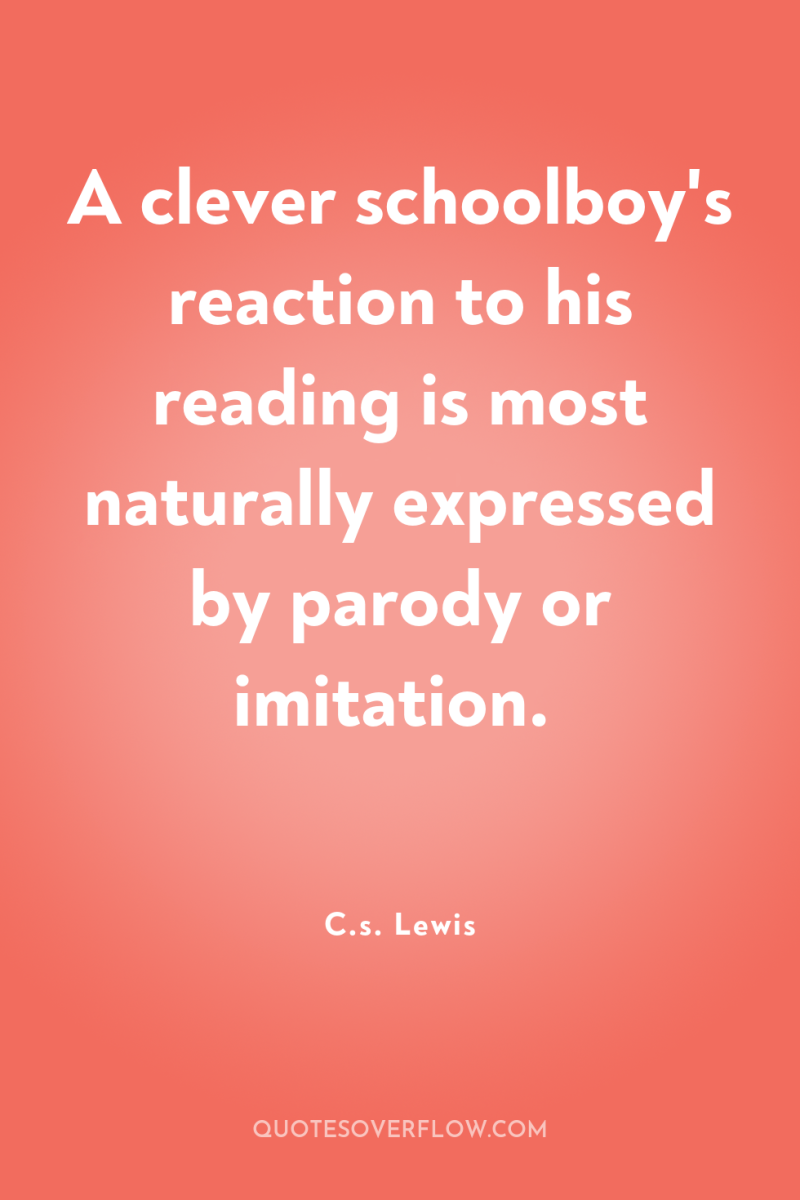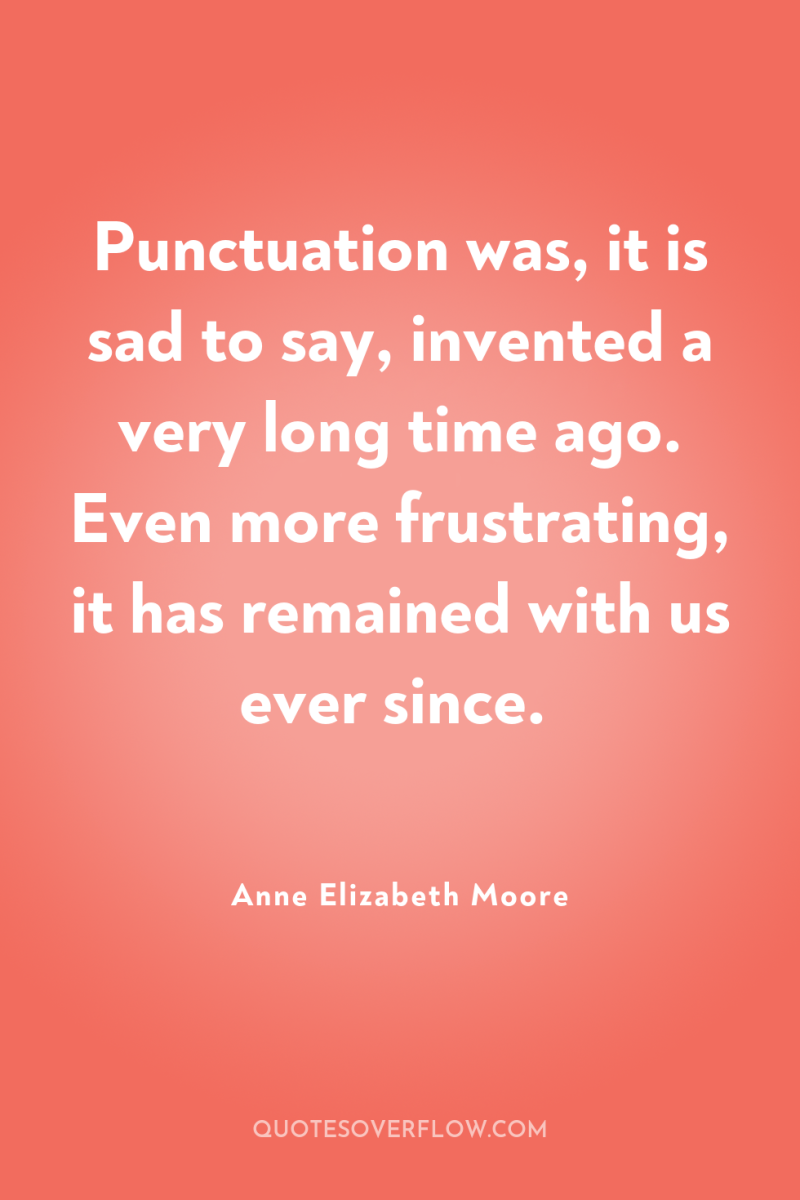1
I ran across an excerpt today (in English translation) of some dialogue/narration from the modern popular writer, Paulo Coelho in his book: Aleph.(Note: bracketed text is mine.).. 'I spoke to three scholars, ' [the character says 'at last.']. .two of them said that, after death, the [sic (misprint, fault of the publisher)] just go to Paradise. The third one, though, told me to consult some verses from the Koran. [end quote]'. .I can see that he's excited. [narrator]'. .Now I have many positive things to say about Coelho: He is respectable, inspiring as a man, a truth-seeker, and an appealing writer; but one should hesitate to call him a 'literary' writer based on this quote. A 'literary' author knows that a character's excitement should be 'shown' in his or her dialogue and not in the narrator's commentary on it. Advice for Coelho: Remove the 'I can see that he's excited' sentence and show his excitement in the phrasing of his quote.( Now, in defense of Coelho, I am firmly of the opinion, having myself written plenty of prose that is flawed, that a novelist should be forgiven for slipping here and there.) Lastly, it appears that a belief in reincarnation is of great interest to Mr. Coelho. . Just think! He is a man who has achieved, (as Leonard Cohen would call it), 'a remote human possibility.' He has won lots of fame and tons of money. And yet, how his preoccupation with reincarnation–none other than an interest in being born again as somebody else–suggests that he is not happy!.Roman Payne

2
A clever schoolboy's reaction to his reading is most naturally expressed by parody or imitation.C.s. Lewis

3
Punctuation was, it is sad to say, invented a very long time ago. Even more frustrating, it has remained with us ever since.Anne Elizabeth Moore
4
Reading a novel after reading semiotic theory was like jogging empty-handed after jogging with hand weights. What exquisite guilt she felt, wickedly enjoying narrative! Madeleine felt safe with a nineteenth century novel. There were going to be people in it. Something was going to happen to them in a place resembling the world. Then too there were lots of weddings in Wharton and Austen. There were all kinds of irresistible gloomy men.Jeffrey Eugenides
5
Your body expresses yesterday in what it wants today. If you think: yesterday I was, tomorrow I shall be, you are thinking: I have died a little. Be what you are becoming, without clinging to what you might have been, what you might yet be. Never settle. Leave definitiveness to the undecided; we don't need it.Luce Irigaray
6
Individuals often turn to poetry, not only to glean strength and perspective from the words of others, but to give birth to their own poetic voices and to hold history accountable for the catastrophes rearranging their lives.Aberjhani
7
Art is not religion, 'it doesn't even lead to religion.' But in the time of distress which is ours, the time when the gods are missing, the time of absence and exile, art is justified, for it is the intimacy of this distress: the effort to make manifest, through the image, the error of the imaginary, and eventually the ungraspable, forgotten truth which hides behind the error.Maurice Blanchot
8
Like ´Bluebeard´, the fairy tale of ´Snow White´does not record a single, appalling crime, but testifies to a structural and endemic conflict in society that was political and social as well as personal, producing many, many instances of similar violence.Marina Warner
9
Theories about world literature, of which fairy tale is a fundamental part, emphasize the porousness of borders, geographical and inguistic: no frontiercan keep a good story from roaming. It will travel, and travel far, and travel back again in a different guise, a changed mood, and, above all, a new meaning.Marina Warner
10
Favoring 'resolution' the way we do, it is hard for us men to write great love stories. Why?, because we want to tell too much. We aren’t satisfied unless at the end of the story the characters are lying there, panting.Roman Payne
11
Your page stands against you and says to you that you are a thief.Marcus Valerius Martialis
12
When the critic has said everything in his power about a literary text, he has still said nothing; for the very existence of literature implies that it cannot be replaced by non-literatureTzvetan Todorov
13
The ambition of much of today's literary theory seems to be to find ways to read literature without imagination.Charles Simic
14
The literary text seems like "a fortified medieval town —foreigners and outsiders are repelled, or allowed in only after rigorous checks, but within all is bustling life; exchange, mutual interdependence and influence are the rule.Jeremy Hawthorn
15
Some have speculated that the way [Albert] Camus died made his theories on absurdity a self-fulfilling prophecy. Others would say it was the triumphant meaningful way he lived that allowed him to rise heroically above absurdity.Aberjhani
16
Characters should be interchangeable as between one book and another. The entire corpus of existing literature should be regarded as a limbo from which discerning authors could draw their characters as required, creating only when they failed to find a suitable existing puppet. The modern novel should be largely a work of reference. Most authors spend their time saying what has been said before — usually said much better. A wealth of references to existing works would acquaint the reader instantaneously with the nature of each character, would obviate tiresome explanations and would effectively preclude mountebanks, upstarts, thimble-riggers and persons of inferior education from an understanding of contemporary literature.Flann OBrien
17
To the jaded eye, all vampires seem alike, but they are wonderful in their versatility. Some come to life in moonlight, others are killed by the sun, some pierce with their eyes, others with fangs, some are reactionary, others are rebels, but all are disturbingly close to the mortals they prey on. I can think of no other monsters who are so receptive. Vampires are neither inhuman nor nonhuman nor all-too-human, they are simply more alive than they should be. .Nina Auerbach
18
The truth is not that we need the critics in order to enjoy the authors, but that we need the authors in order to enjoy the critics.C.s. Lewis
19
There is, in fact, no need to drag politics into literary theory: as with South African sport, it has been there from the beginning. I mean by the political no more than the way we organize our social life together, and the power-relations which this involves; and what I have tried to show throughout this book is that the history of modern literary theory is part of the political and ideological history of our epoch. From Percy Bysshe Shelley to Norman N. Holland, literary theory has been indissociably bound up with political beliefs and ideological values. Indeed literary theory is less an object of intellectual enquiry in its own right than a particular perspective in which to view the history of our times. Nor should this be in the least cause for surprise. For any body of theory concerned with human meaning, value, language, feeling and experience will inevitably engage with broader, deeper beliefs about the nature of human individuals and societies, problems of power and sexuality, interpretations of past history, versions of the present and hopes for the future. It is not a matter of regretting that this is so – of blaming literary theory for being caught up with such questions, as opposed to some 'pure' literary theory which might be absolved from them. Such 'pure' literary theory is an academic myth: some of the theories we have examined in this book are nowhere more clearly ideological than in their attempts to ignore history and politics altogether. Literary theories are not to be upbraided for being political, but for being on the whole covertly or unconsciously so – for the blindness with which they offer as a supposedly 'technical', 'self-evident', 'scientific' or 'universal' truth doctrines which with a little reflection can be seen to relate to and reinforce the particular interests of particular groups of people at particular times. .Terry Eagleton
20
Even in the act of fleeing modern ideologies, however, literary theory reveals its often unconscious complicity with them, betraying its elitism, sexism or individualism in the very ‘aesthetic’ or ‘unpolitical’ language it finds natural to use of the literary text. It assumes, in the main, that at the centre of the world is the contemplative individual self, bowed over its book, striving to gain touch with experience, truth, reality, history or tradition. Other things matter too, of course – this individual is in personal relationship with others, and we are always much more than readers – but it is notable how often such individual consciousness, set in its small circle of relationships, ends up as the touchstone of all else. The further we move from the rich inwardness of the personal life, of which literature is the supreme exemplar, the more drab, mechanical and impersonal existence becomes. It is a view equivalent in the literary sphere to what has been called possessive individualism in the social realm, much as the former attitude may shudder at the latter: it reflects the values of a political system which subordinates the sociality of human life to solitary individual enterprise.Terry Eagleton